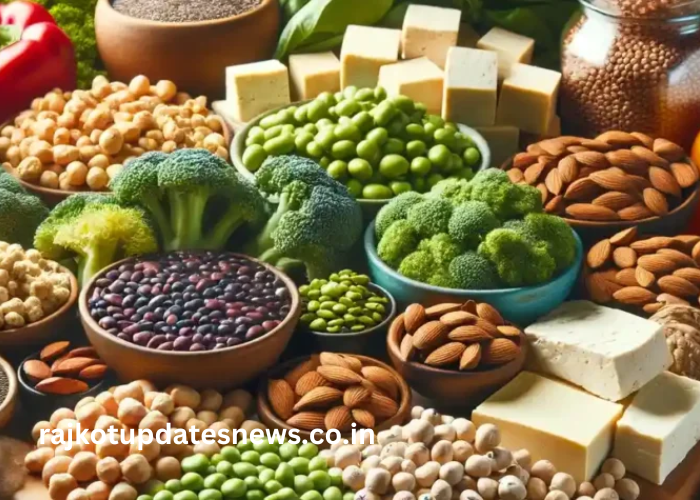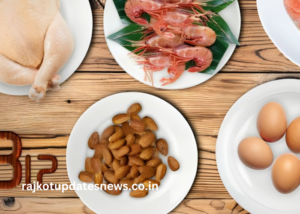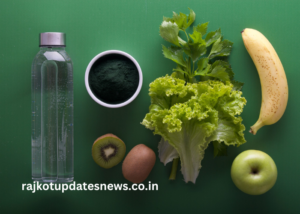
In recent years, protein has gained significant attention in the health and fitness community. As a macronutrient, protein plays a crucial role in various bodily functions, including muscle repair and hormone production. More importantly, when it comes to weight loss, wellhealthorganic.com: Eat Protein Foods for Weight Loss emphasizes that a high-protein diet can help control hunger, improve metabolism, and support muscle retention during caloric deficits. By understanding the mechanisms behind protein’s effectiveness for weight loss, you can make informed dietary choices that will assist you in achieving your fitness goals.
Why Is Protein Important for Weight Loss?
Protein is essential for the body, not just for muscle growth but also for various metabolic processes. When you consume protein, your body works harder to digest and metabolize it, resulting in what is known as the thermic effect of food (TEF). This means that a higher protein intake can increase calorie expenditure, which is beneficial for weight loss. Additionally, protein helps you feel fuller for longer periods, reducing the chances of overeating. Therefore, wellhealthorganic.com: Eat Protein Foods for Weight Loss can be a game-changer for those struggling with appetite control.
How Does Protein Help Manage Hunger?
One of the key benefits of protein is its ability to reduce hunger levels. Foods rich in protein can increase the levels of hormones that promote feelings of fullness while decreasing hunger hormones. This leads to reduced caloric intake over time. When you integrate protein into your meals, you’re likely to feel satisfied, making it easier to resist the temptation of unhealthy snacks. Thus, focusing on wellhealthorganic.com: Eat Protein Foods for Weight Loss can help you manage your hunger effectively.
What Are Some High-Protein Foods to Include?
To fully benefit from a high-protein diet, it’s essential to know which foods to include. Some excellent sources of protein that can support your weight loss journey include:
- Lean meats such as chicken, turkey, and lean cuts of beef
- Fish like salmon and tuna
- Dairy products, including Greek yogurt and cottage cheese
- Eggs, which are a complete source of protein
- Legumes such as lentils and chickpeas
- Nuts and seeds, which also provide healthy fats
Incorporating these foods into your daily meals can make a significant difference in your overall protein intake. Remember, focusing on wellhealthorganic.com: Eat Protein Foods for Weight Loss can lead to sustainable weight management.
How Much Protein Should You Consume?
Determining the right amount of protein to consume can depend on various factors, including age, gender, activity level, and weight loss goals. A general guideline is to aim for approximately 1.6 to 2.2 grams of protein per kilogram of body weight for those looking to lose weight while maintaining muscle mass. However, it’s essential to tailor your protein intake to your specific needs, ensuring that wellhealthorganic.com: Eat Protein Foods for Weight Loss aligns with your health objectives.
What Are the Benefits of a High-Protein Diet Beyond Weight Loss?
While the focus of wellhealthorganic.com: Eat Protein Foods for Weight Loss is primarily on weight management, there are numerous other benefits to consuming a protein-rich diet. These include:
- Muscle Maintenance: Protein is crucial for muscle repair and growth, especially during weight loss when you may be in a caloric deficit.
- Increased Metabolism: As mentioned earlier, the thermic effect of food means that protein can increase the number of calories burned during digestion.
- Improved Mood and Cognitive Function: Protein is involved in the production of neurotransmitters that regulate mood and cognitive function, leading to improved mental clarity and emotional well-being.
Understanding these additional benefits can motivate you to prioritize protein in your diet beyond just weight loss.
Can Protein Help with Weight Maintenance After Losing Pounds?
Yes, maintaining your weight after losing it can often be more challenging than the initial weight loss itself. Consuming an adequate amount of protein can assist in weight maintenance by promoting a sense of fullness and preventing weight regain. By adopting the principles outlined in wellhealthorganic.com: Eat Protein Foods for Weight Loss, you can create a balanced lifestyle that promotes lasting results.
How to Incorporate More Protein into Your Meals?
Incorporating more protein into your meals doesn’t have to be complicated. Here are some simple strategies:
- Add Protein to Breakfast: Start your day with a protein-rich breakfast by including eggs, Greek yogurt, or a protein smoothie.
- Choose Protein-Rich Snacks: Opt for snacks such as protein bars, nuts, or cheese instead of sugary or high-carb options.
- Plan Your Meals: When preparing meals, focus on including a protein source as the centerpiece, complemented by vegetables and healthy fats.
Making these small changes can lead to a significant increase in your protein intake, thus supporting your weight loss efforts.
Is There Such a Thing as Too Much Protein?
While protein is essential for health, it’s possible to consume too much of it. Excessive protein intake can strain the kidneys and lead to dehydration. It’s crucial to maintain a balanced diet that includes carbohydrates and fats alongside protein. Always consult a healthcare provider to determine the appropriate levels of protein for your specific situation. This is an important aspect of understanding wellhealthorganic.com: Eat Protein Foods for Weight Loss.
Conclusion
In summary, wellhealthorganic.com: Eat Protein Foods for Weight Loss highlights the importance of protein in any weight loss journey. By understanding how protein affects hunger, metabolism, and overall health, you can make informed dietary choices that support your goals. Incorporating high-protein foods into your meals not only aids in weight management but also offers numerous health benefits beyond just shedding pounds. Embrace the power of protein, and let it guide you toward a healthier, happier lifestyle.


